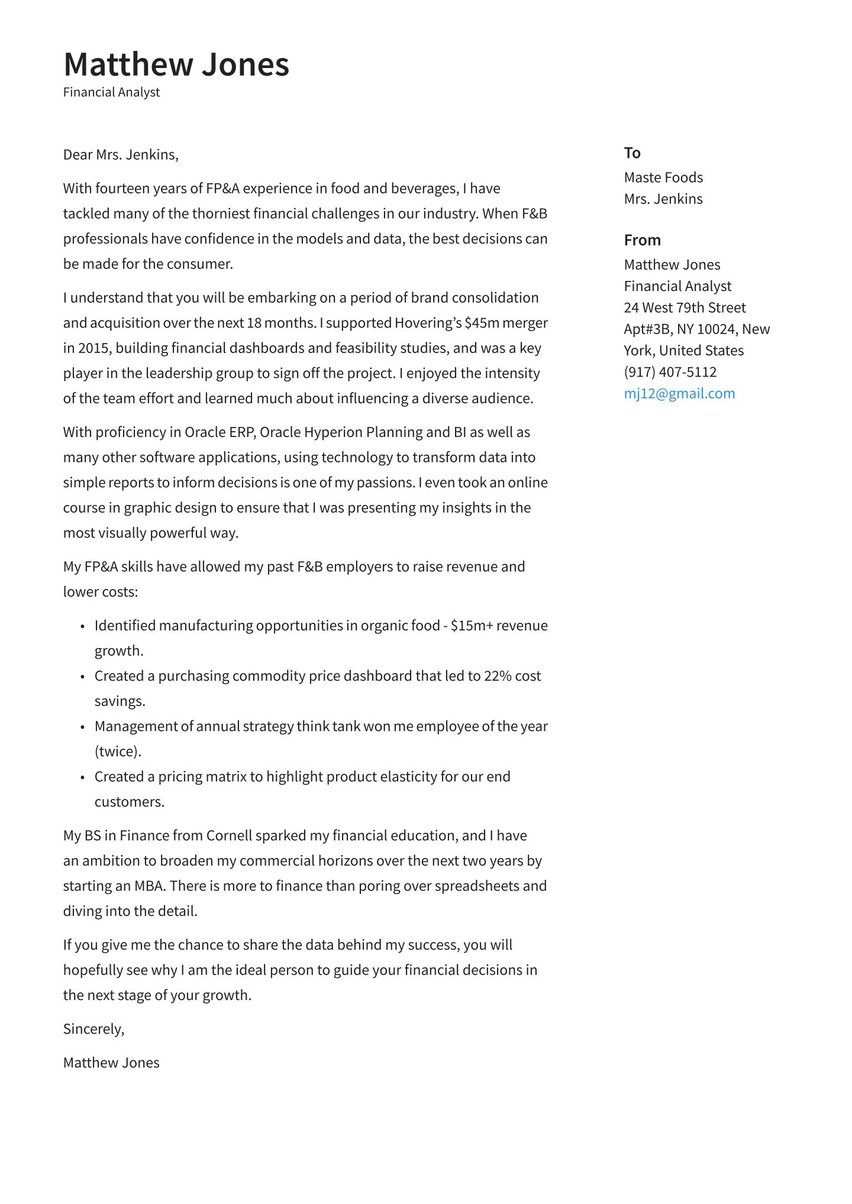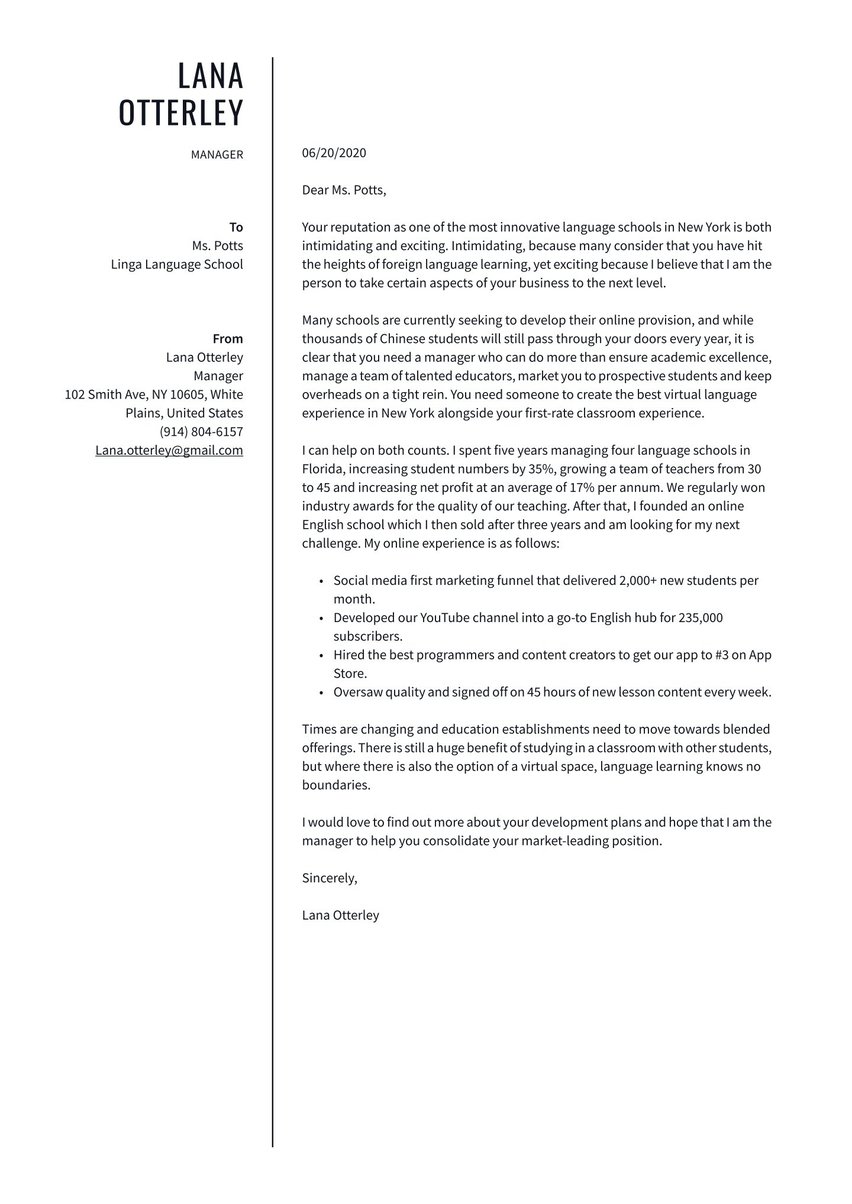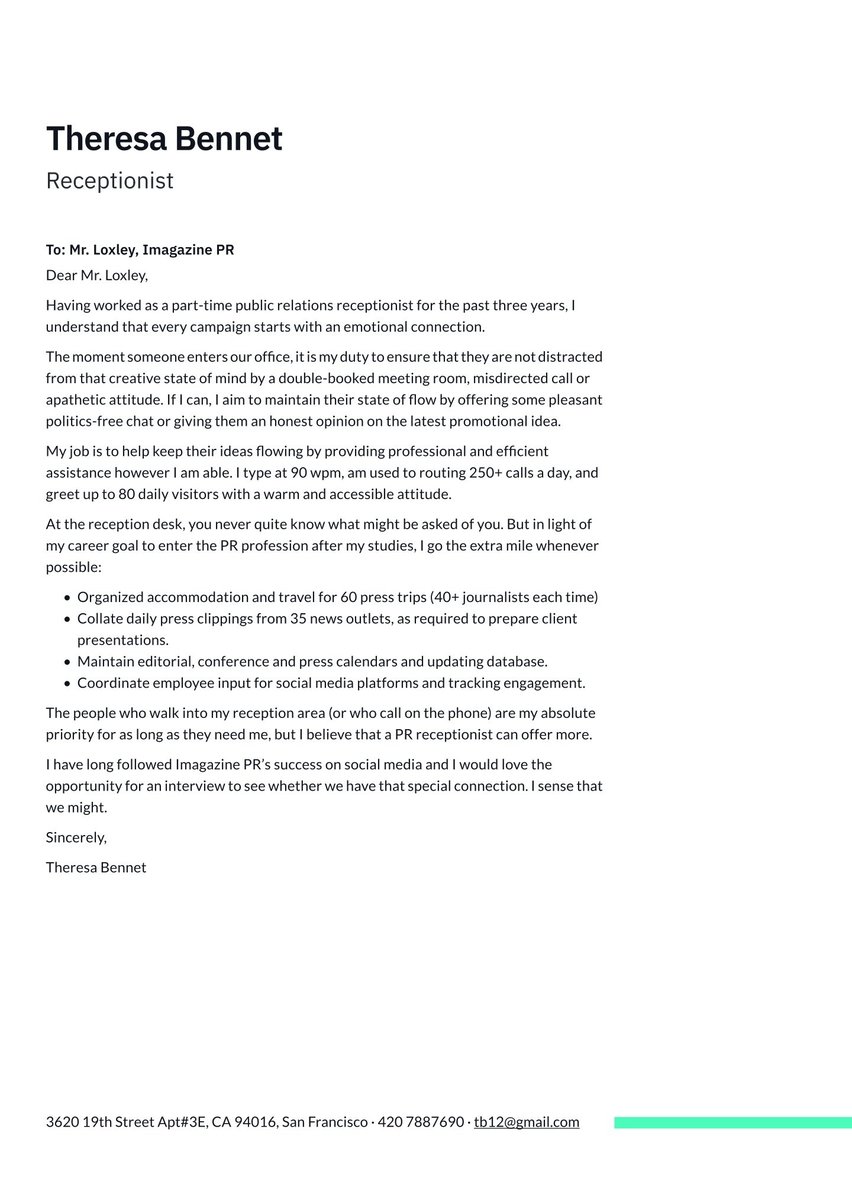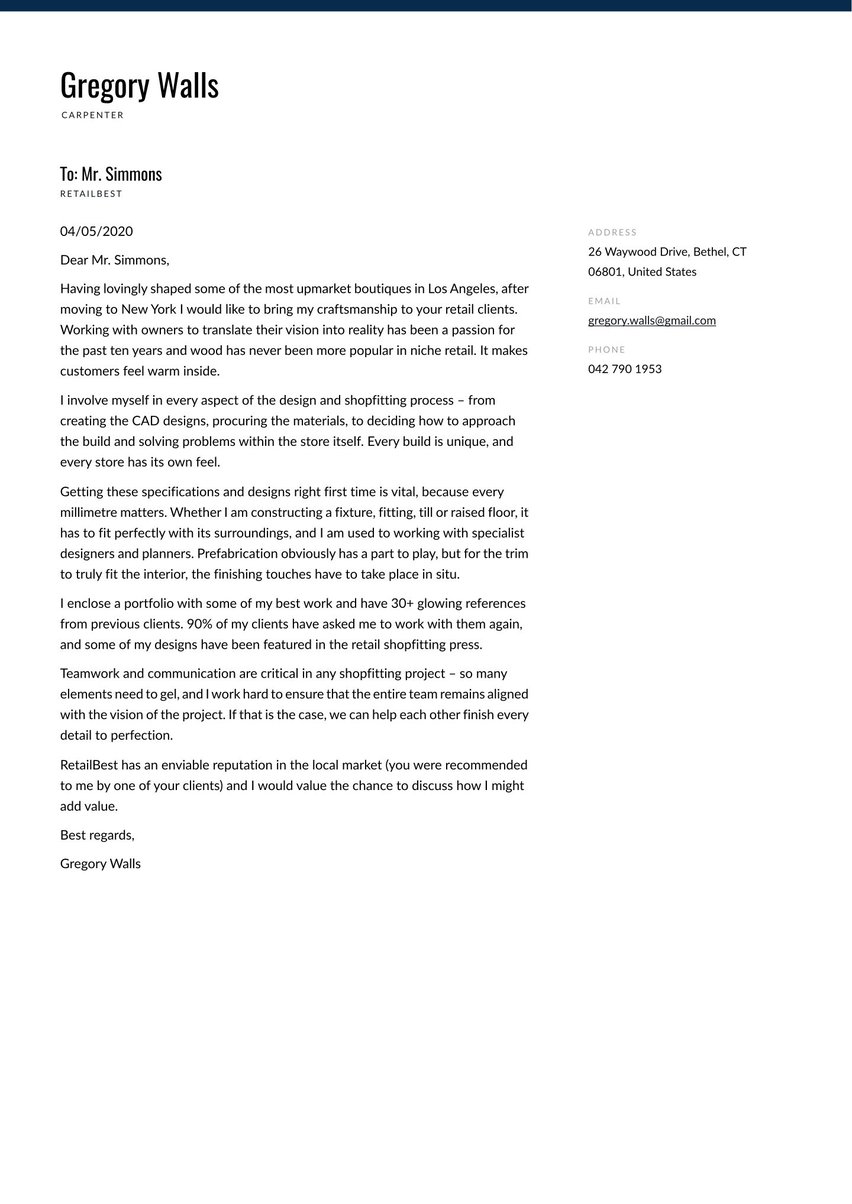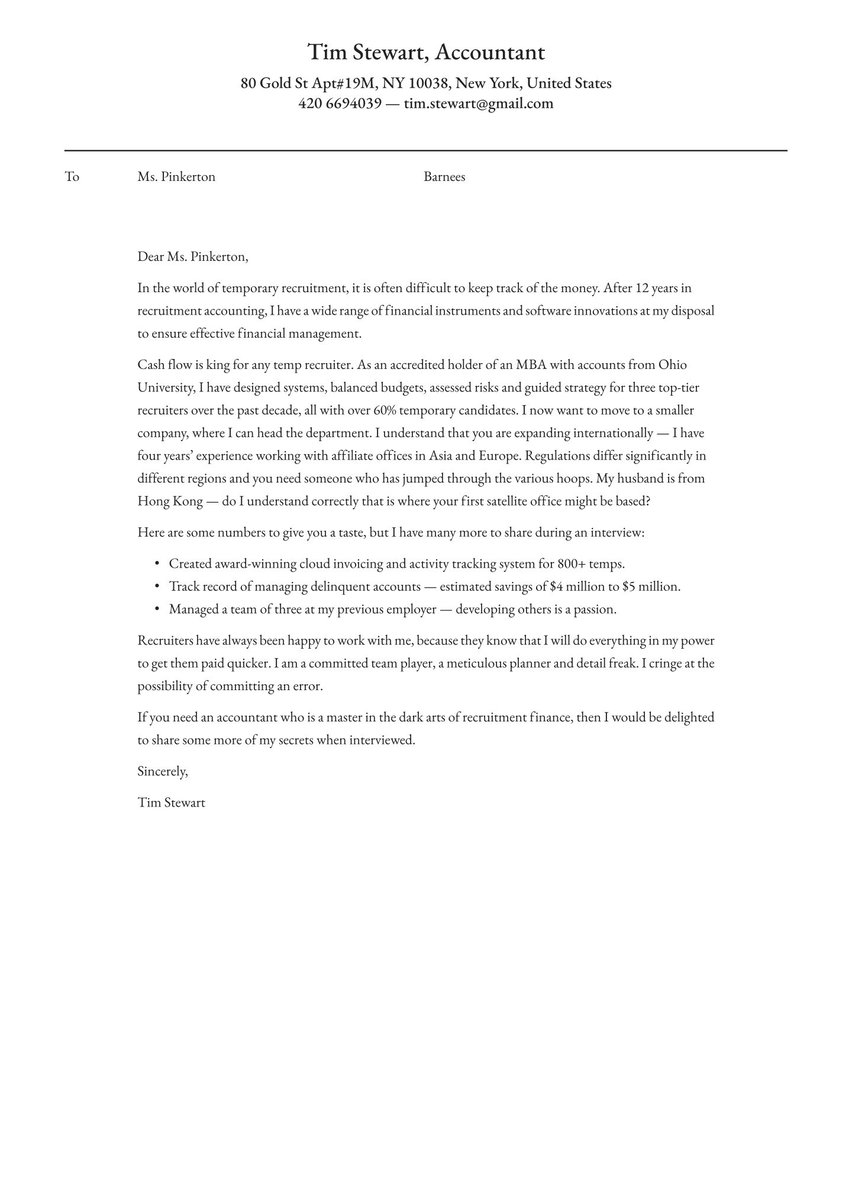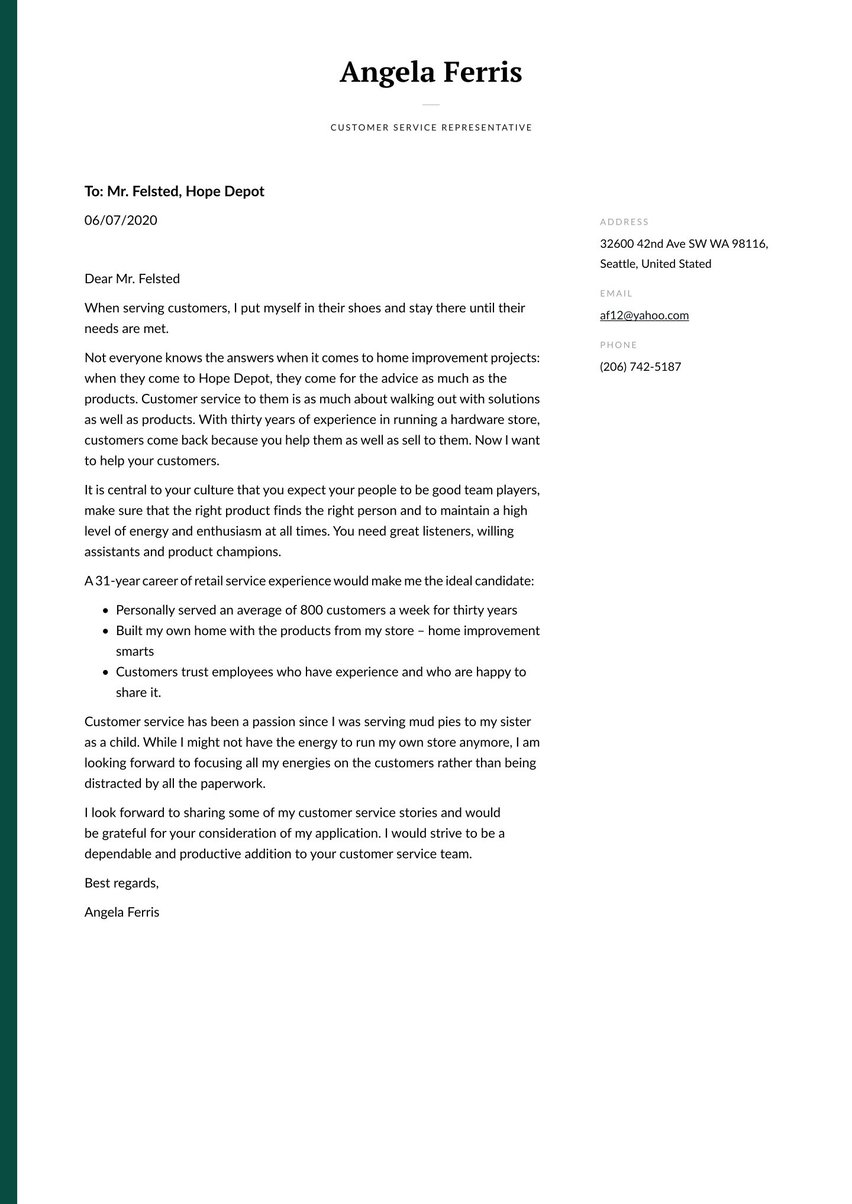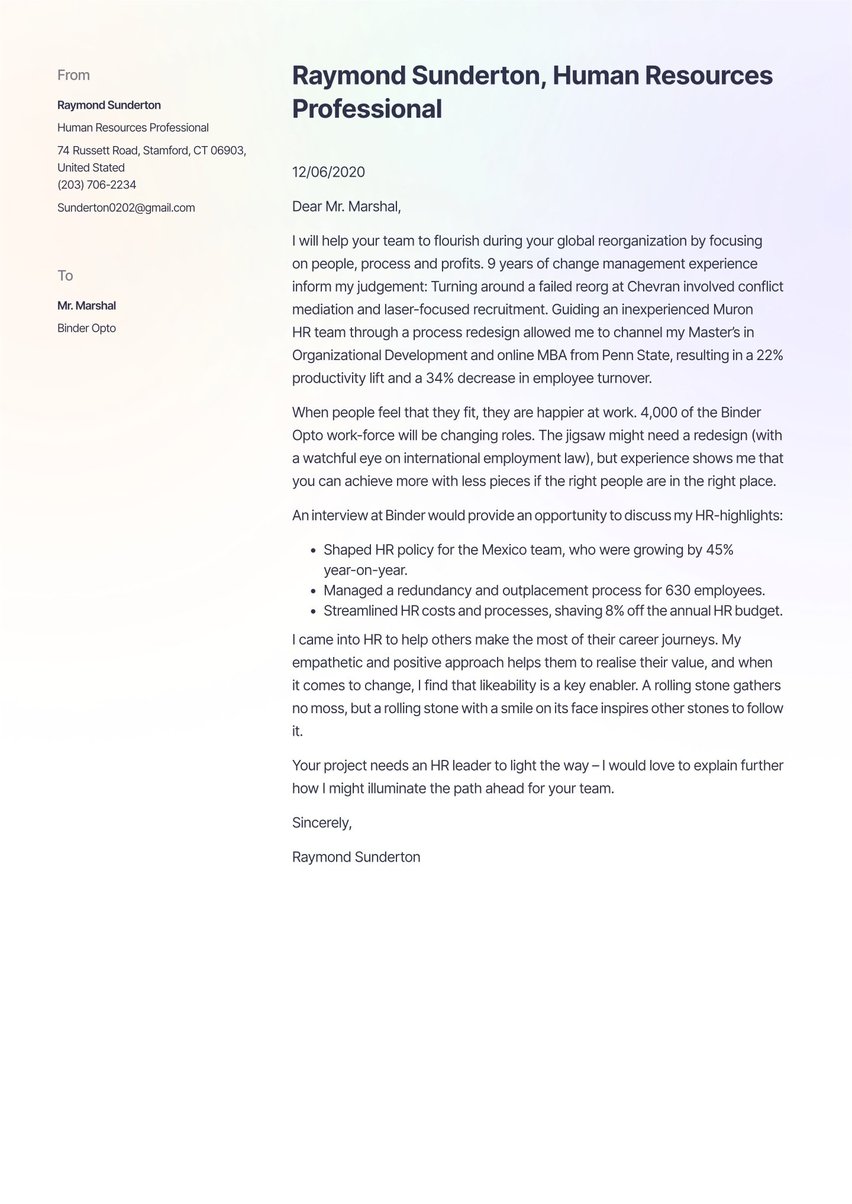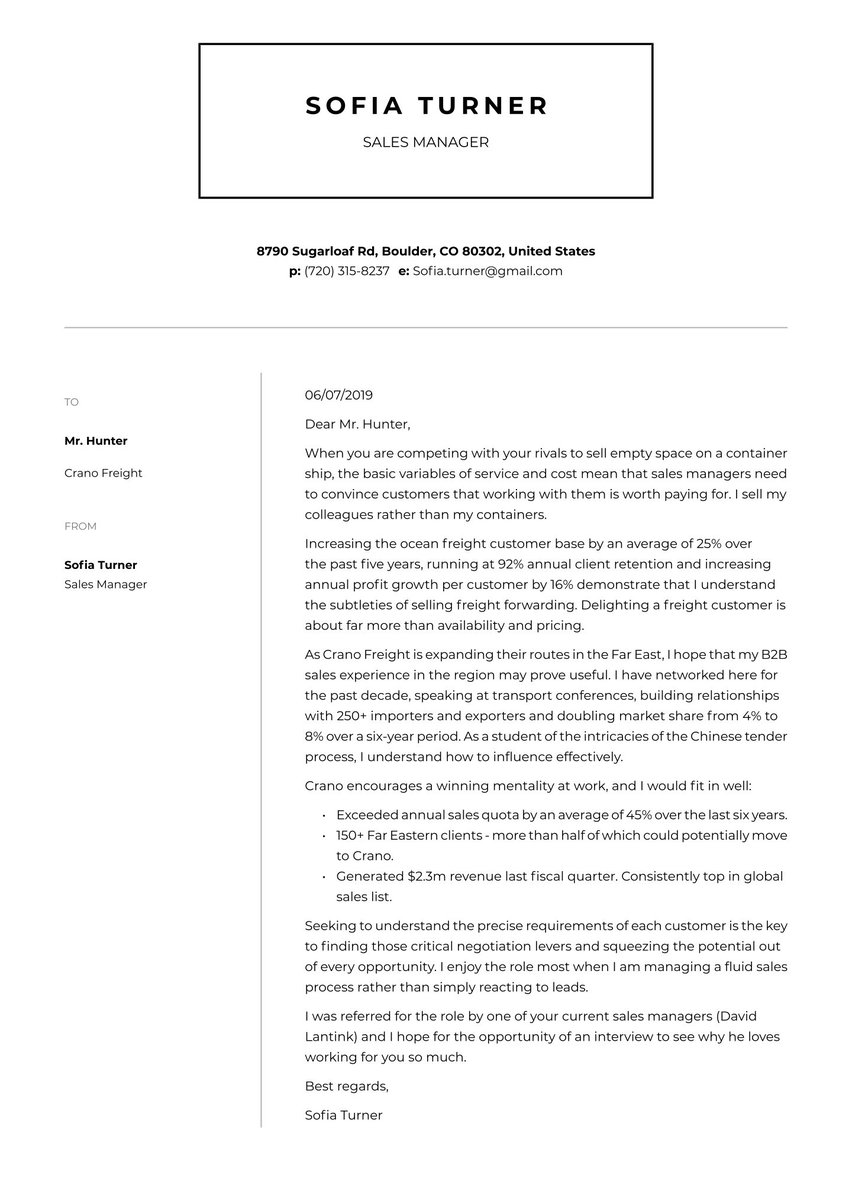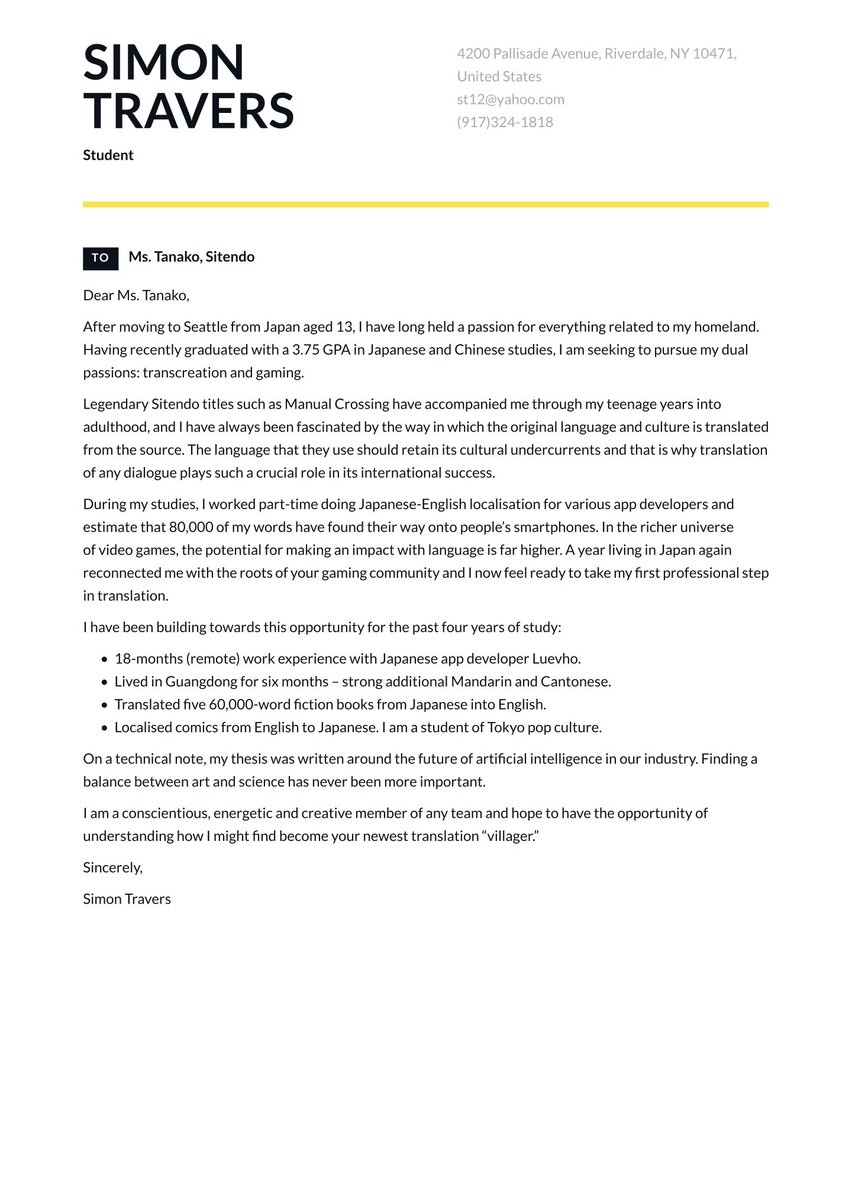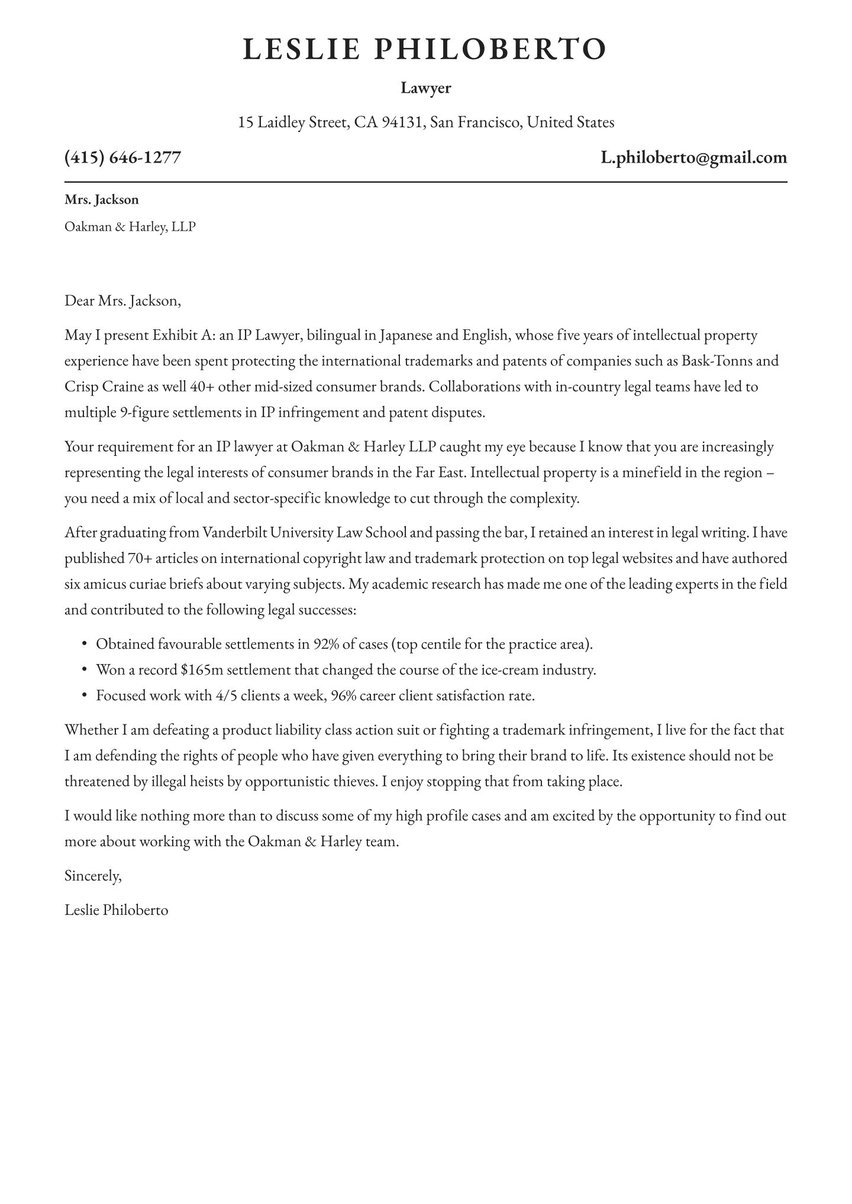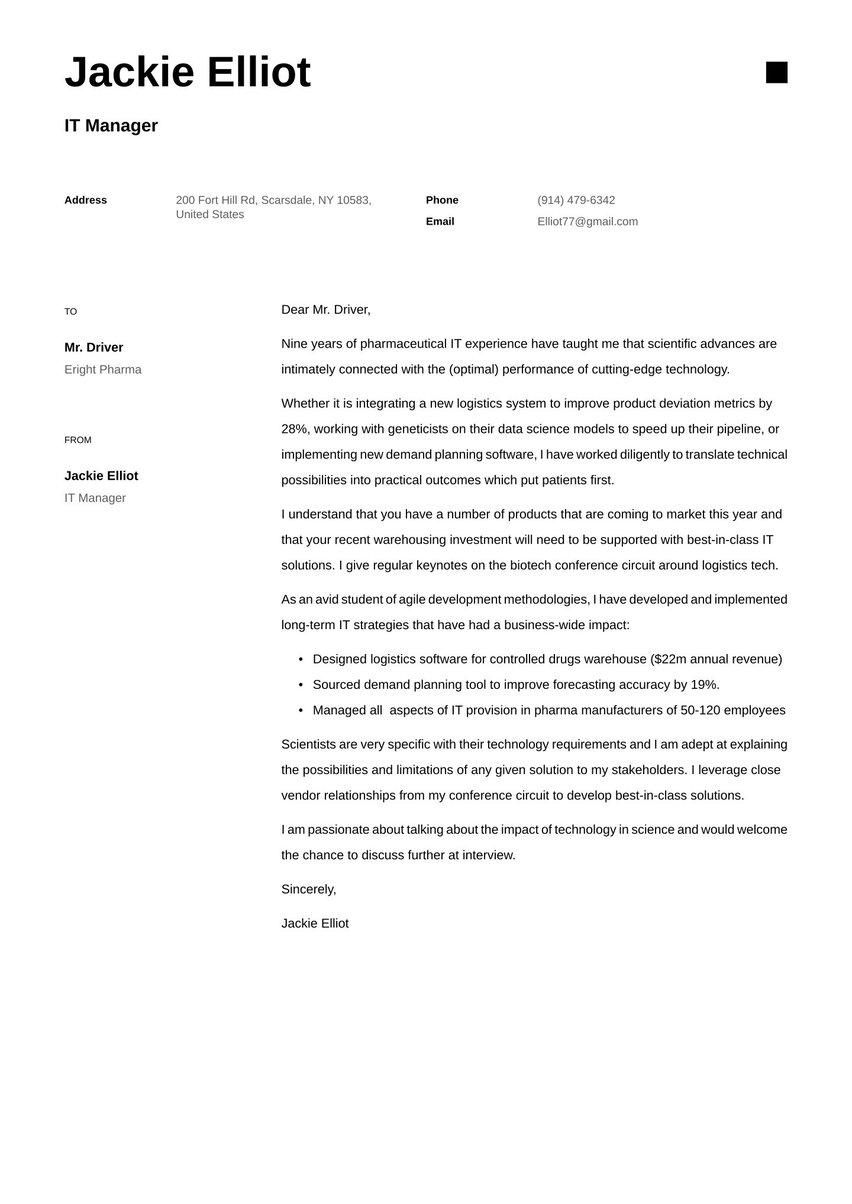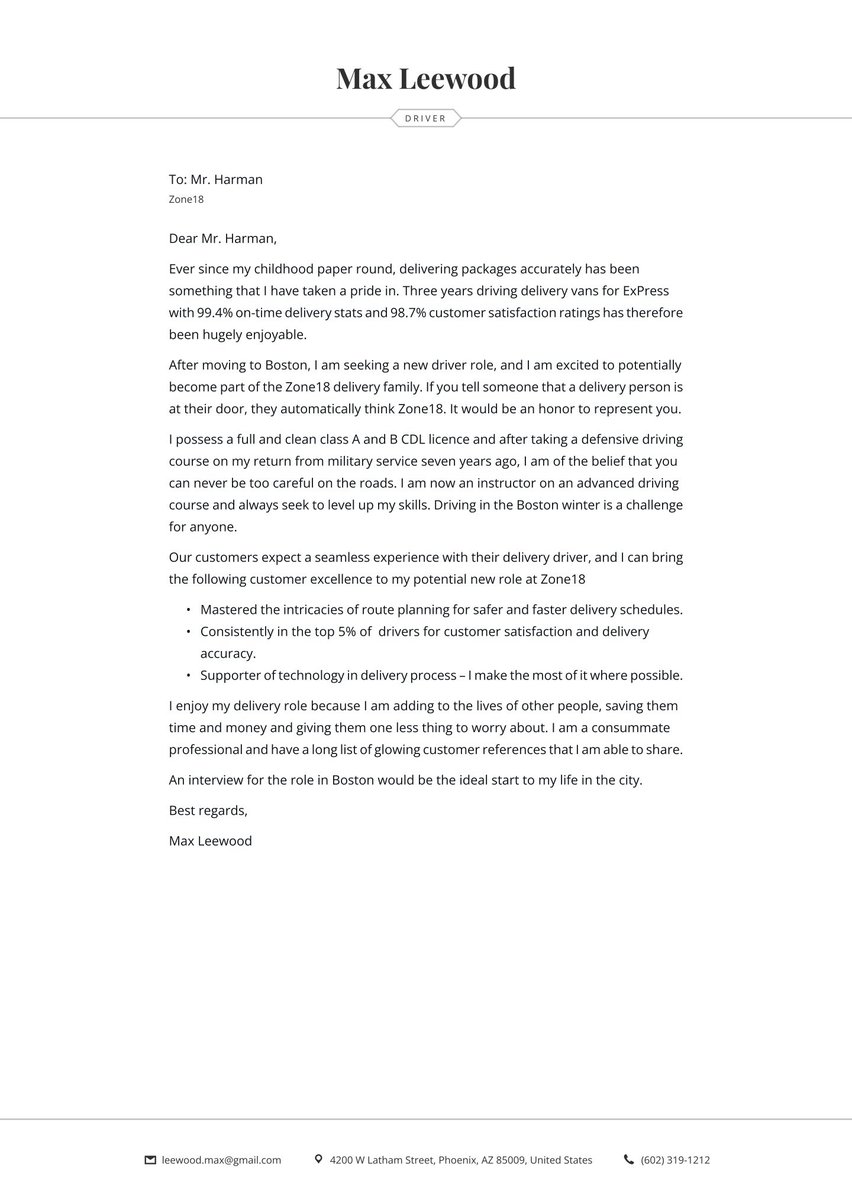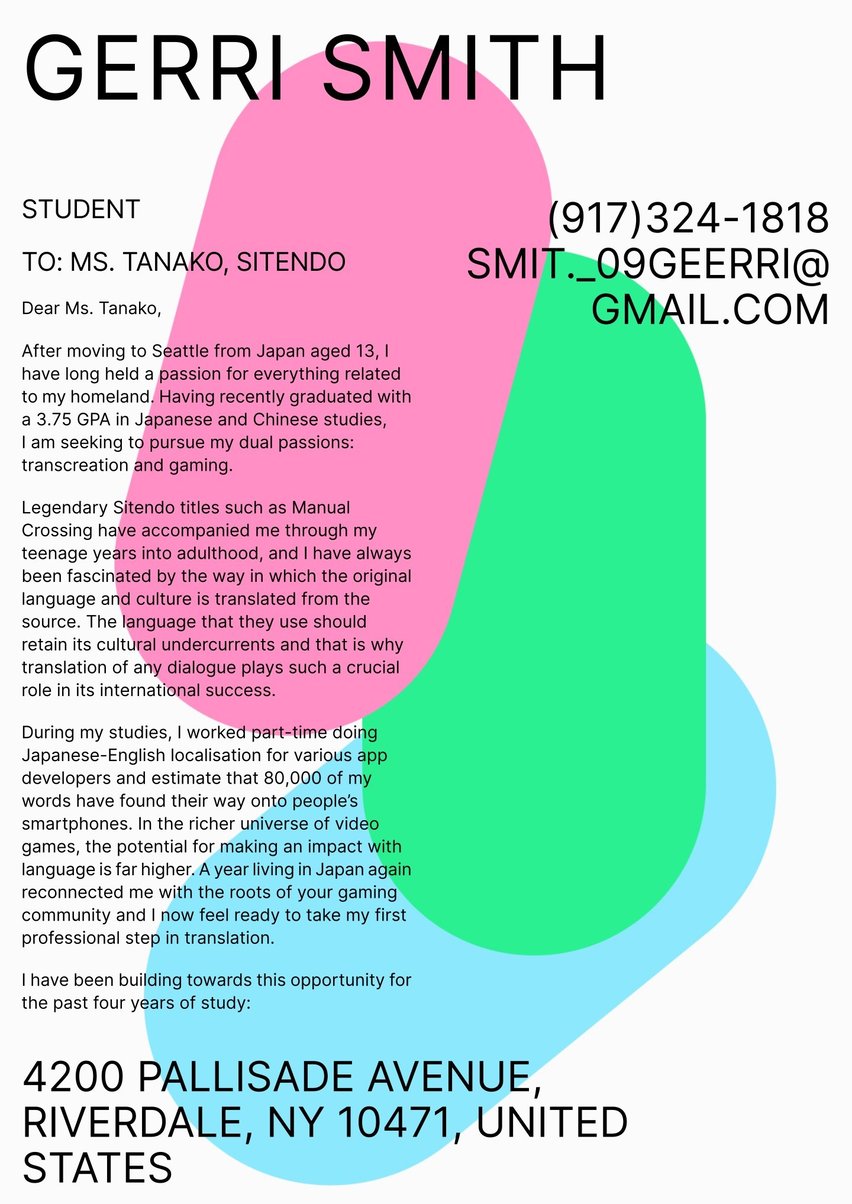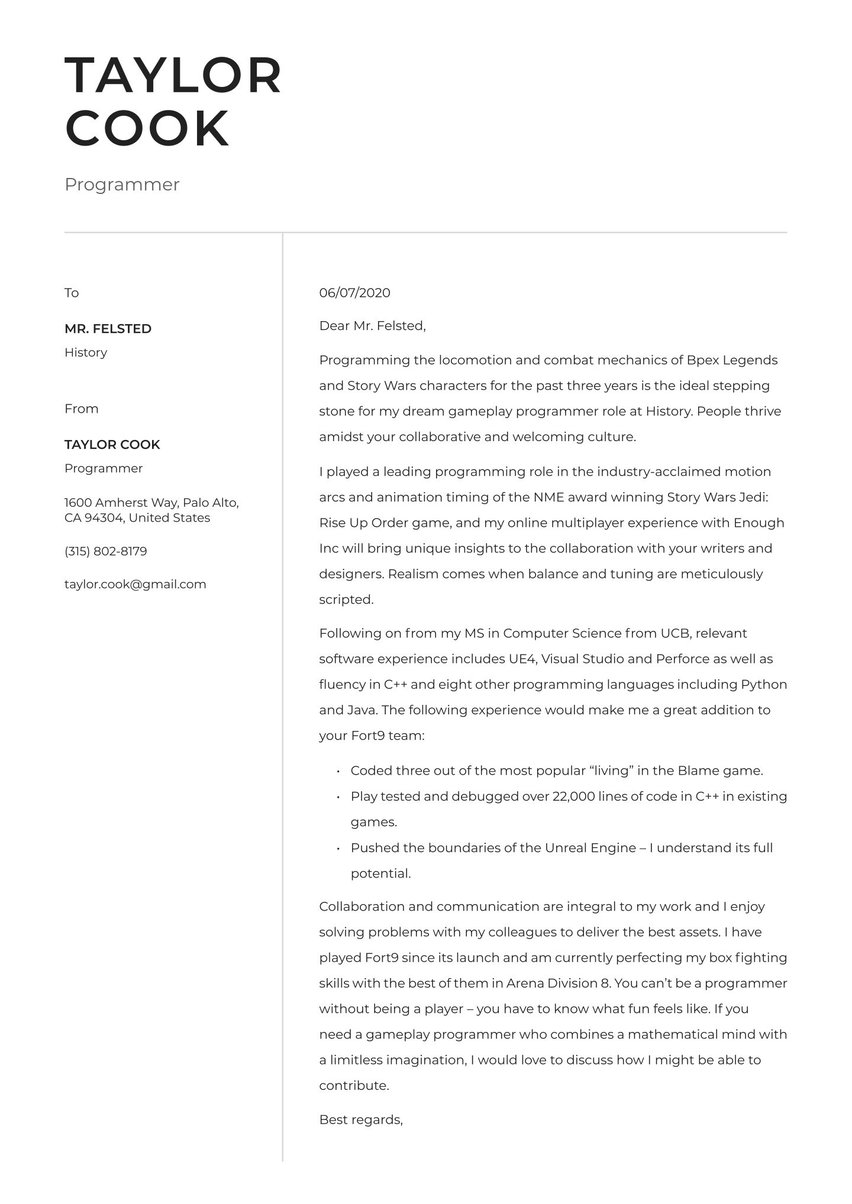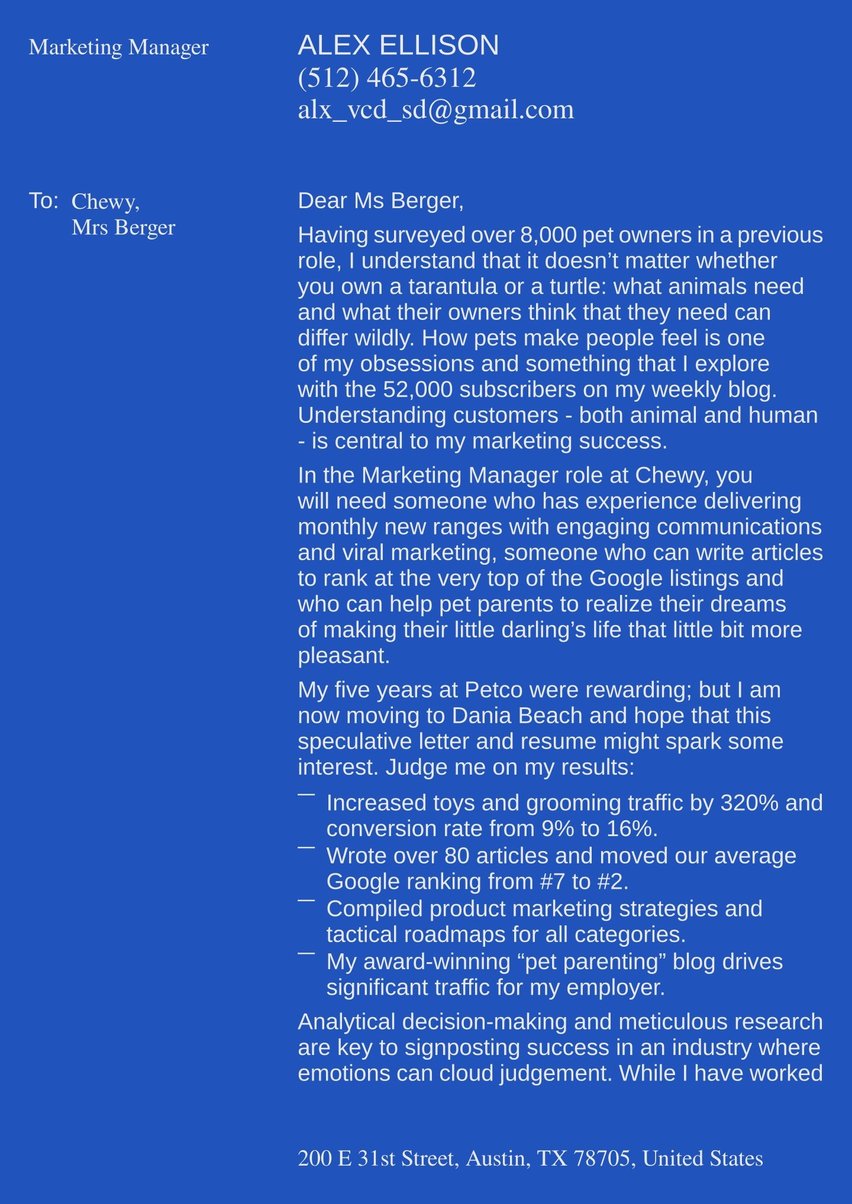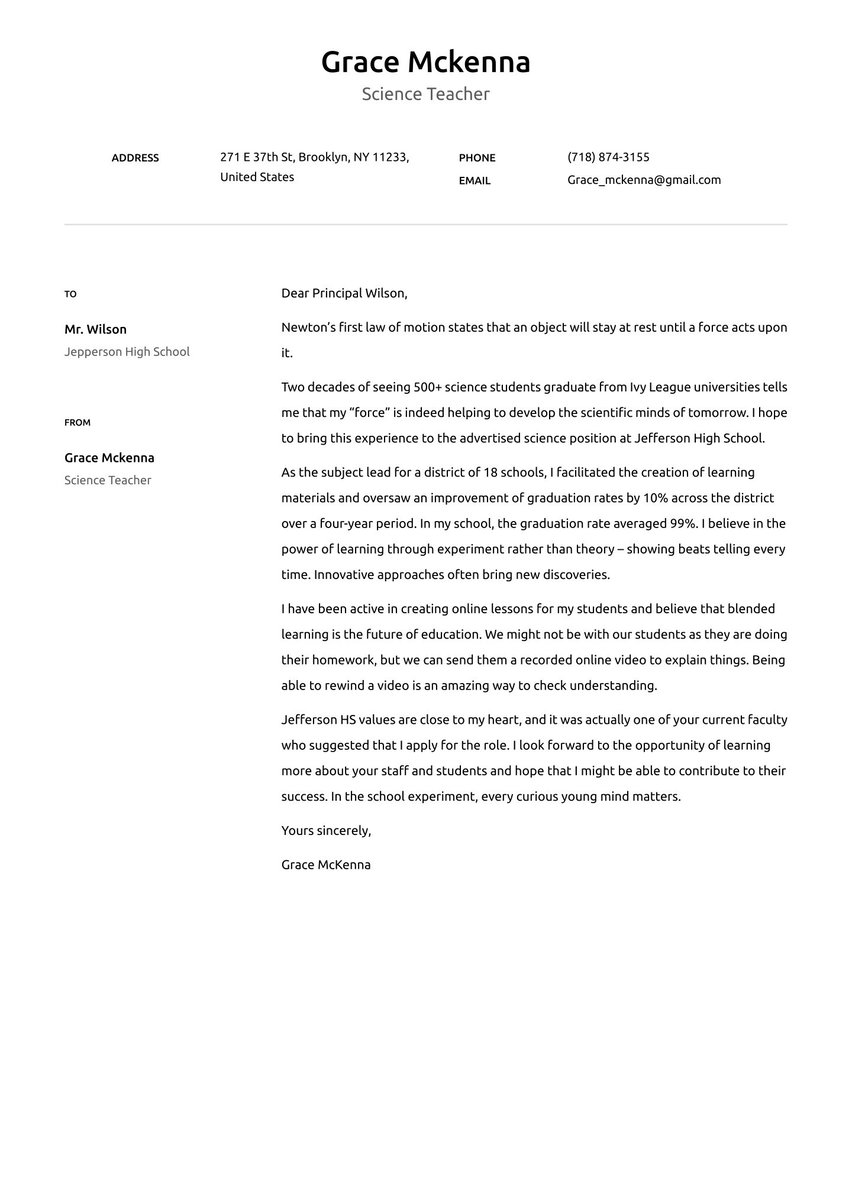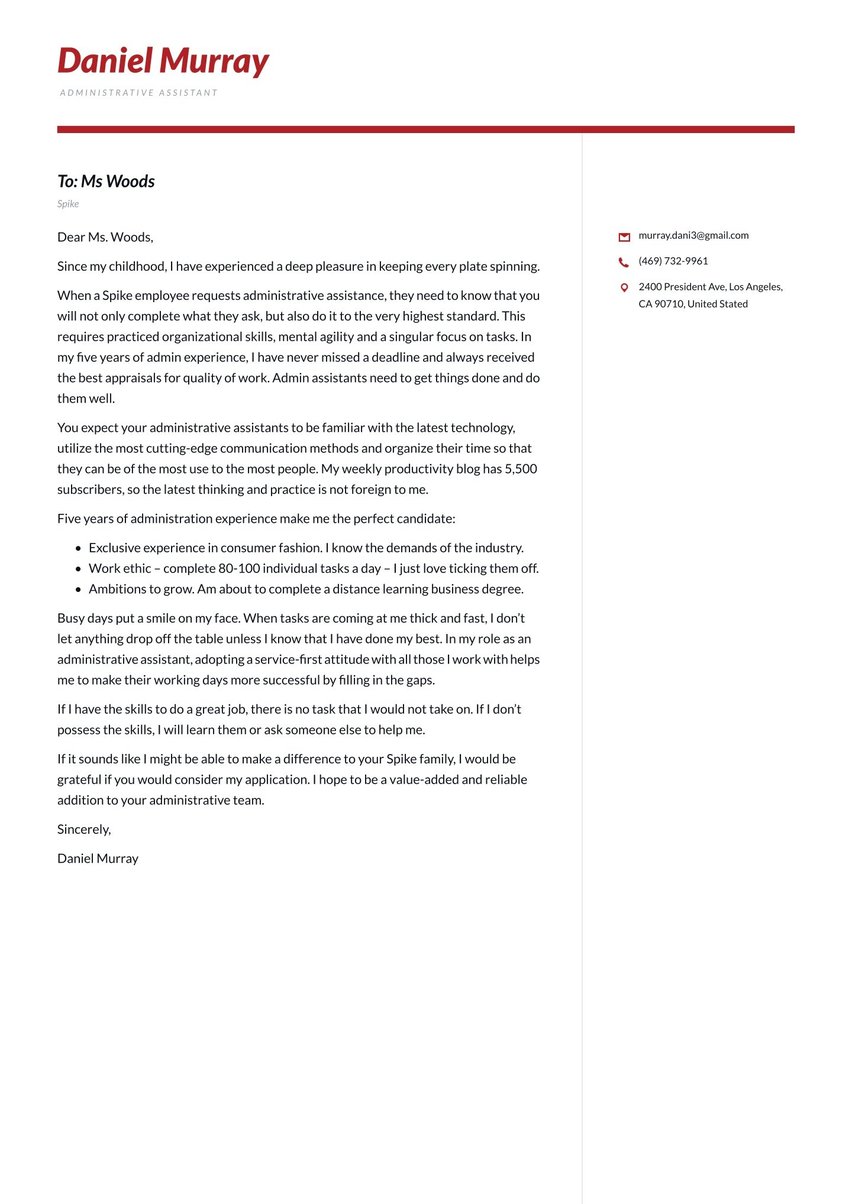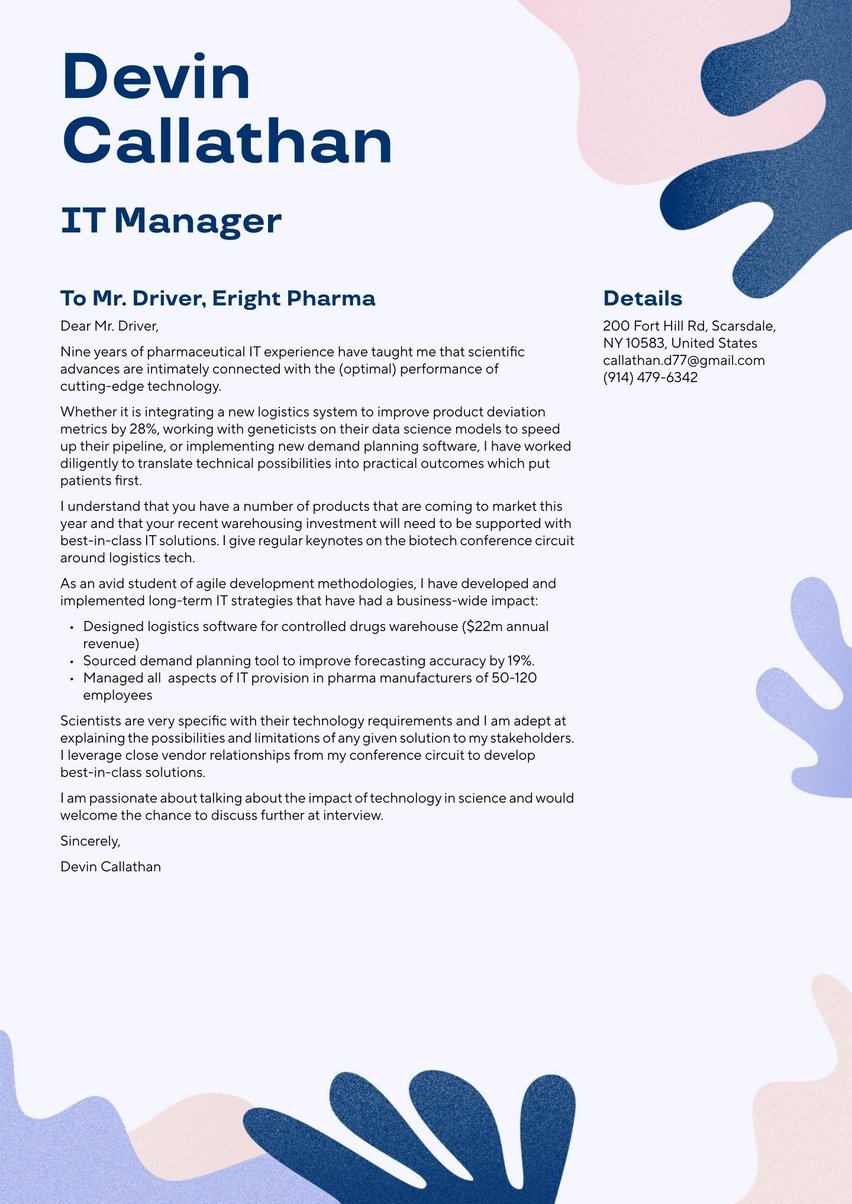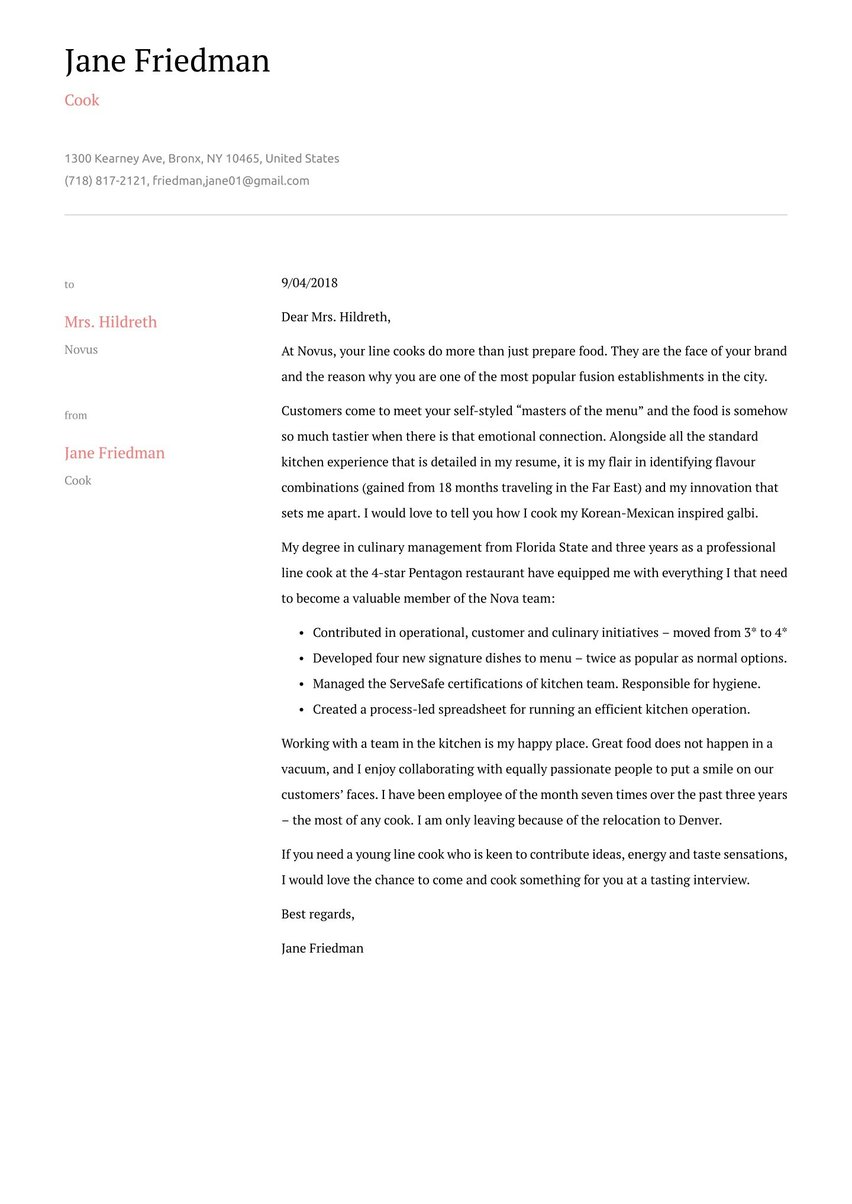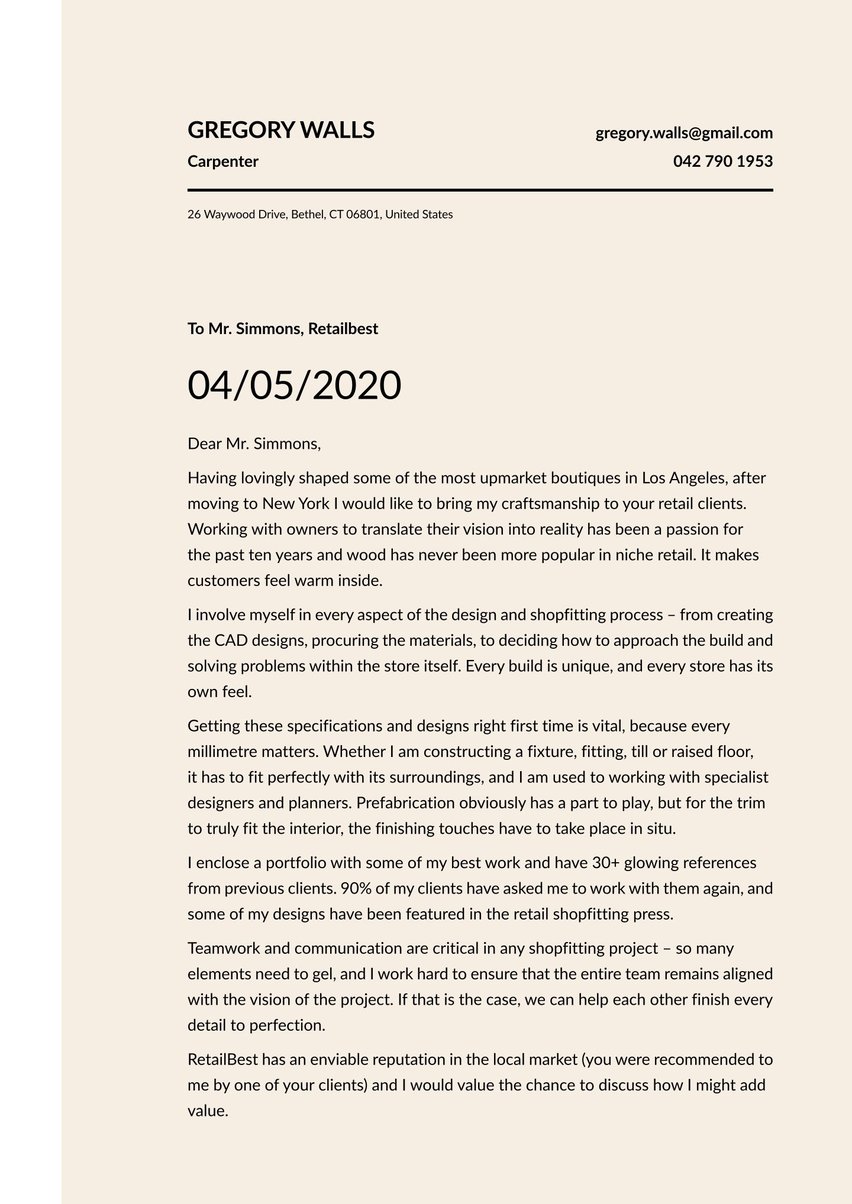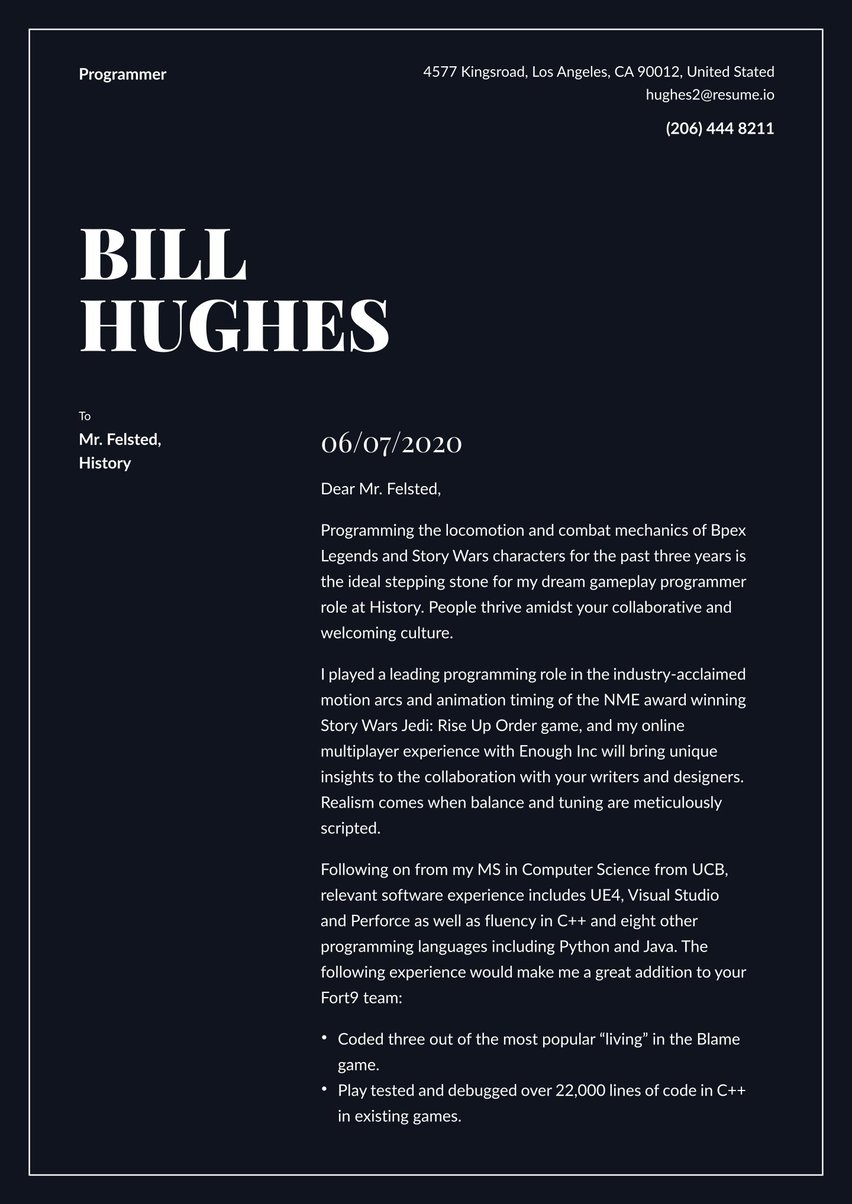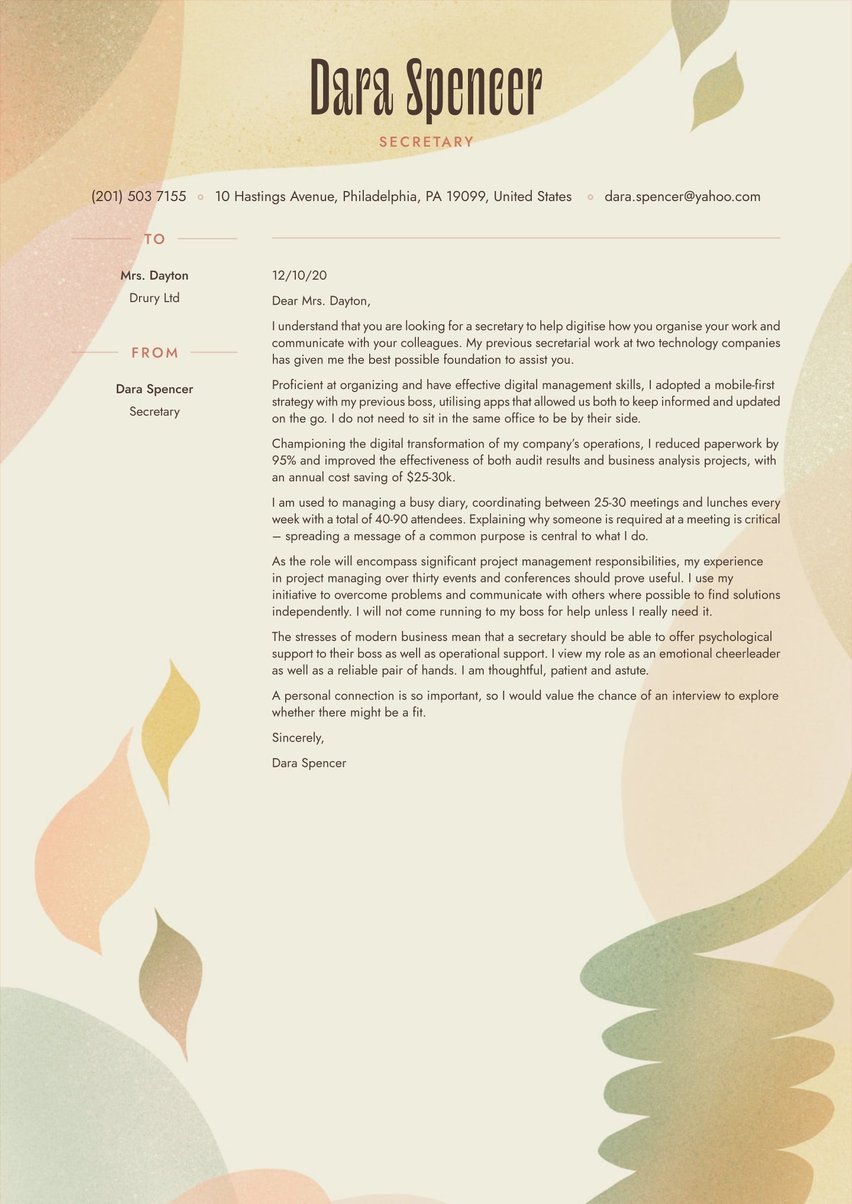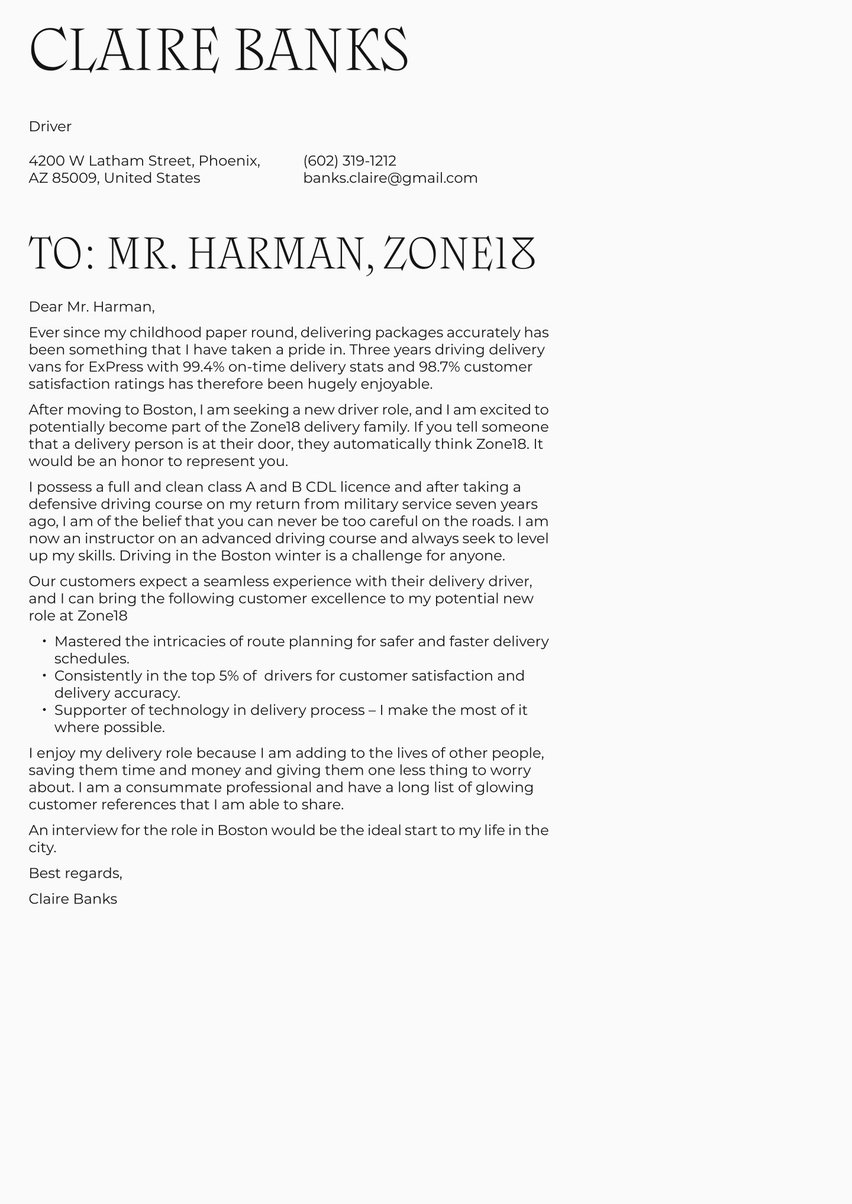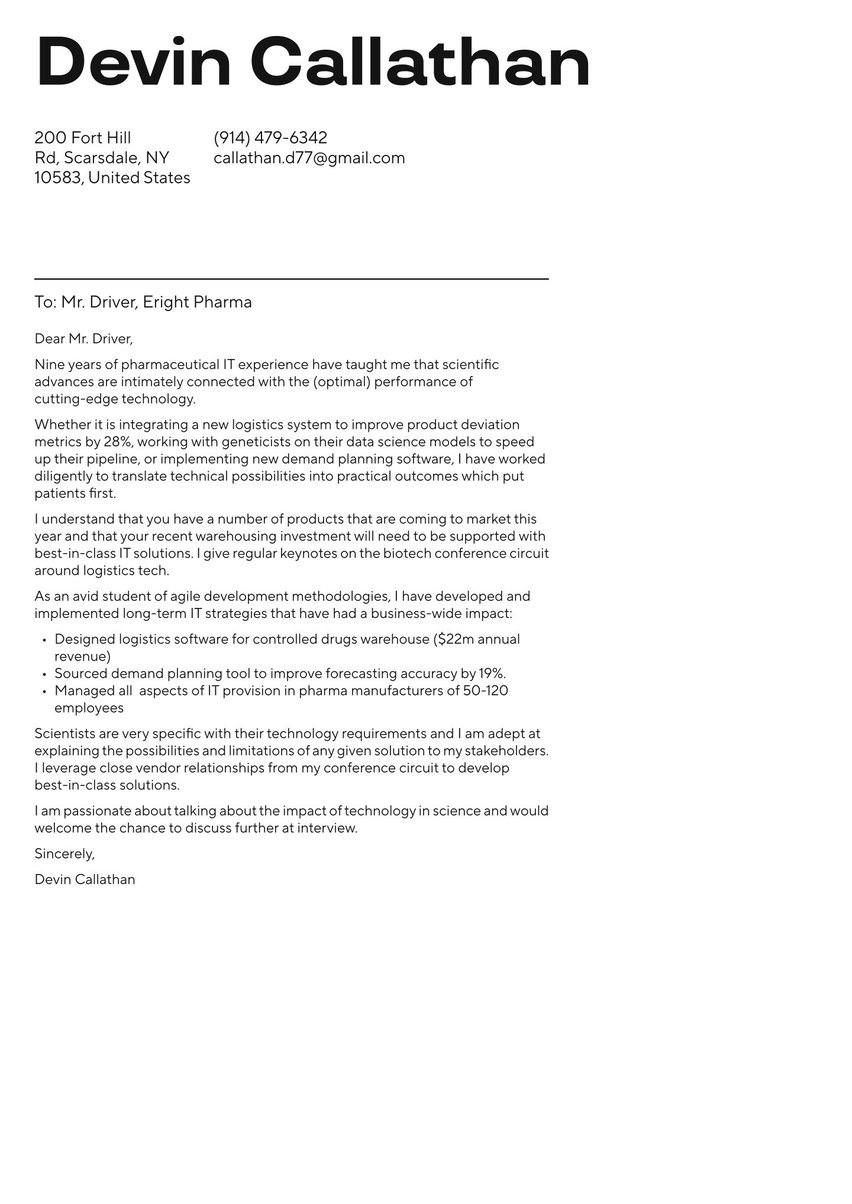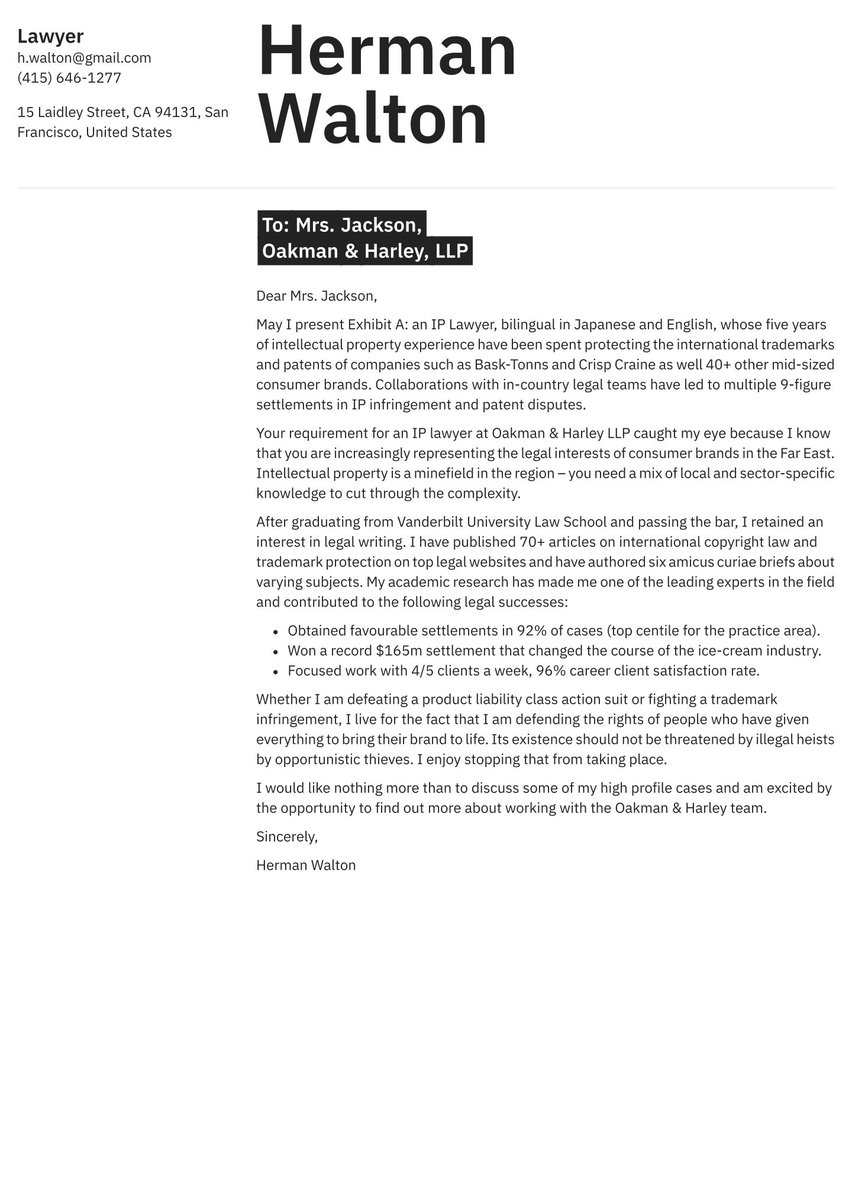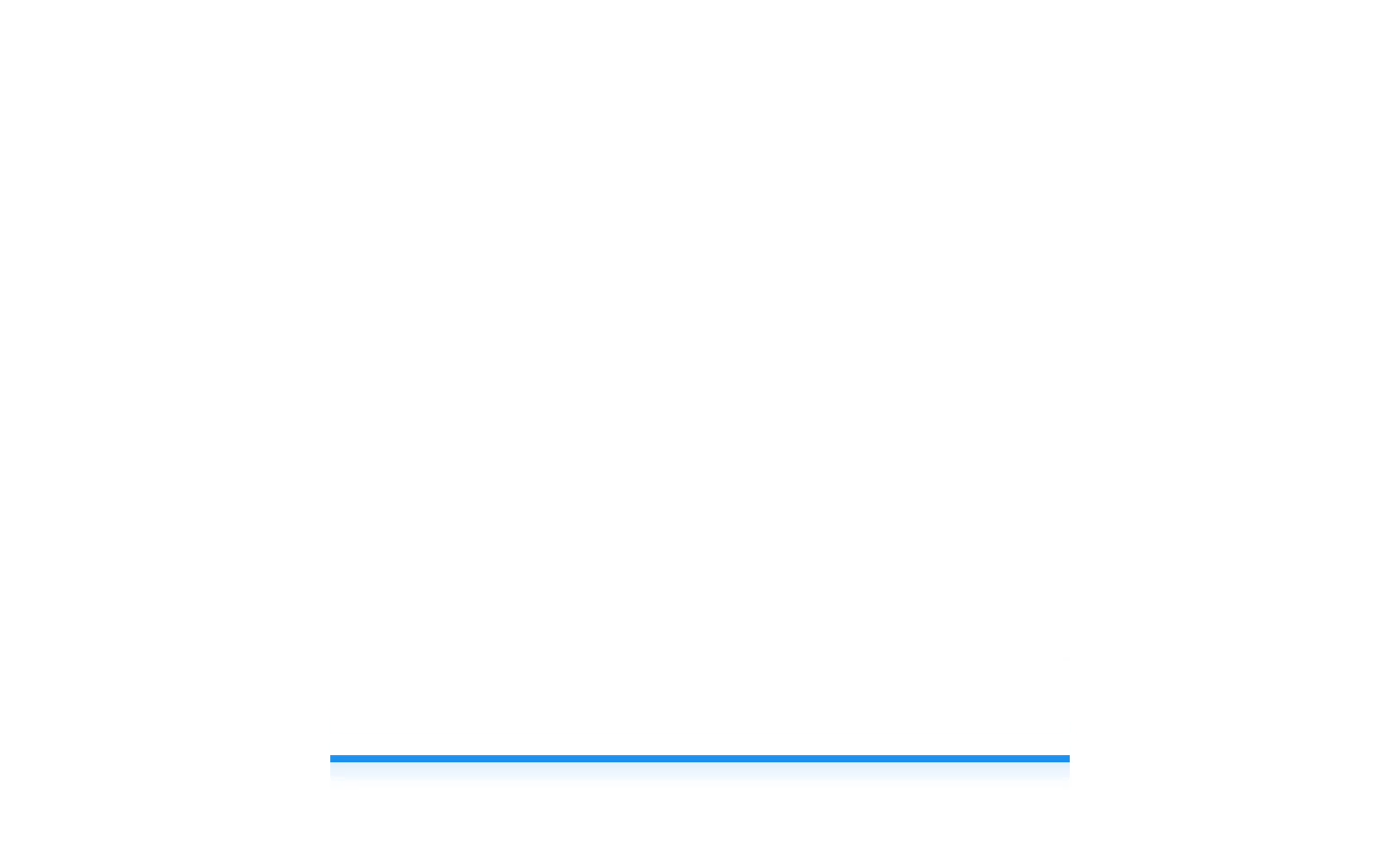Whether you’re looking for a fun summer job at a theme park or you’re an experienced server ready to take your career to the next level, jobs in the hospitality industry can offer flexible hours, rewarding work and quick cash. An exceptional hospitality cover letter can open the best doors to your future in this attractive and competitive field.
In restaurants, hotels and tourist attractions, hiring managers are looking for candidates with the right temperament, proven communication skills and the ability to work in a team. Because hospitality jobs make great entry-level positions, you may find that competition for these jobs is steep, regardless of the number of positions available. In order to prove you’re the ideal candidate, you’ll need more than a copy-paste application.
That’s where a great hospitality cover letter comes in. As a self-promotional document, it helps showcase your personality, perspectives and talents, allowing you to expand on how you go the extra mile for your customers.
This hospitality cover letter guide guide will:
- Explain the purpose and impact of a thoughtful, well organized cover letter
- Highlight the best cover letter format to incorporate all essential components
- Explain how to maximize the impact of each cover letter element: header, greeting, introduction, body and conclusion
- Offer expert tips on how to land your dream job even with no hospitality experience
- Help you avoid some of the biggest mistakes made by other hospitality job seekers.
But first, if you haven’t already crafted the perfect resume, that’s a great place to start. Check out Resume.io’s templates, general resume writing guide, and hospitality resume examples with profession-specific tips to create the perfect resume.
Remember, the cover letter is the ideal companion to a great resume. Together, they work as a powerful duo to get you hired! Professional cover letter templates like these from Resume.io can make creating an attractive layout much easier.
What if the hospitality job application doesn't REQUIRE a cover letter?
You may run into a job application that indicates a cover letter is optional, or fails to mention it at all. Many candidates interpret this as an invitation to take the easy way out and submit an application without a cover letter. In doing so, they directly shoot themselves in the foot on their job search. Why would you willingly forfeit such an easy increase in chances for success, if all you need to do is spend 30 to 40 minutes with our cover letter builder?
If you’re looking for additional inspiration for cover letter writing, you can check out our other related hospitality cover letter examples listed here below.
- Barista cover letter sample
- Restaurant cover letter sample
- Waitress cover letter sample
- Chef cover letter sample
- Cleaning job cover letter sample
- Bartender cover letter sample
- Starbucks cover letter sample
- Server cover letter sample
- Hotel Receptionist cover letter sample
- Travel Agent cover letter sample
- Restaurant Manager cover letter sample
- McDonald's cover letter sample
- Pastry Chef cover letter sample
Best format for a hospitality cover letter
A strong sense of organization is especially for hospitality management candidates who need to demonstrate attention to detail and great communication skills on a daily basis. One way to show an employer your sense of efficiency is by structuring your cover letter well. Luckily, this format works across all hospitality jobs and positions so writing a great cover letter is a skill that will benefit you for years to come.
Here are the key components:
- The cover letter header
- The greeting or cover letter salutation
- The introduction
- The letter body
- The conclusion
- The signature / sign-off phrase.
Dear Mrs. Buchanan,
Having managed the customer service team of a conference centre which accommodated up to 7,000 delegates, I am well placed to head up your customer care team
Running a successful conference requires meeting the needs of countless suppliers, partners, and attendees. The experience should be seamless. Your conferences are famous for their operational brilliance - I am experienced in using the latest technology. Attention to detail is only possible if you understand the limitations of the technology.
Six years after my degree in Hotel and Restaurant Management at Howto University, I am still finding new ways to solve customer problems. Practice takes over from theory after a while. From my perspective, guidelines should mostly be followed, but sometimes you need to take action that goes beyond what is expected. You never know who might be signing on the dotted line for your next conference – every visitor is special.
I pride myself on having the judgement to make the right decisions. Our customer satisfaction rating of 97.9 was the third highest out of our 38 conference centres. While I was the head of customer service, we doubled repeat business from 31% to 63%. Attendee numbers went up by an average of 48% over the same period. When companies trust you to organize their events, their competition will start to trust you as well.
I pride myself in my ability to influence issues before they get out of control. My life is so much easier when I can anticipate problems and smooth relationships ahead of time. The key to this is listening – my interest in meditation helps here.
I am coming to your conference next week and was wondering whether it might be an opportunity to meet for a discussion? Otherwise, I look forward to a potential interview to understand more about how I might assist you in delighting your customers.
Sincerely,
Matthew Jones
For even more writing tips and an in-depth look at each of these sections, check out our universal guide on cover letters.
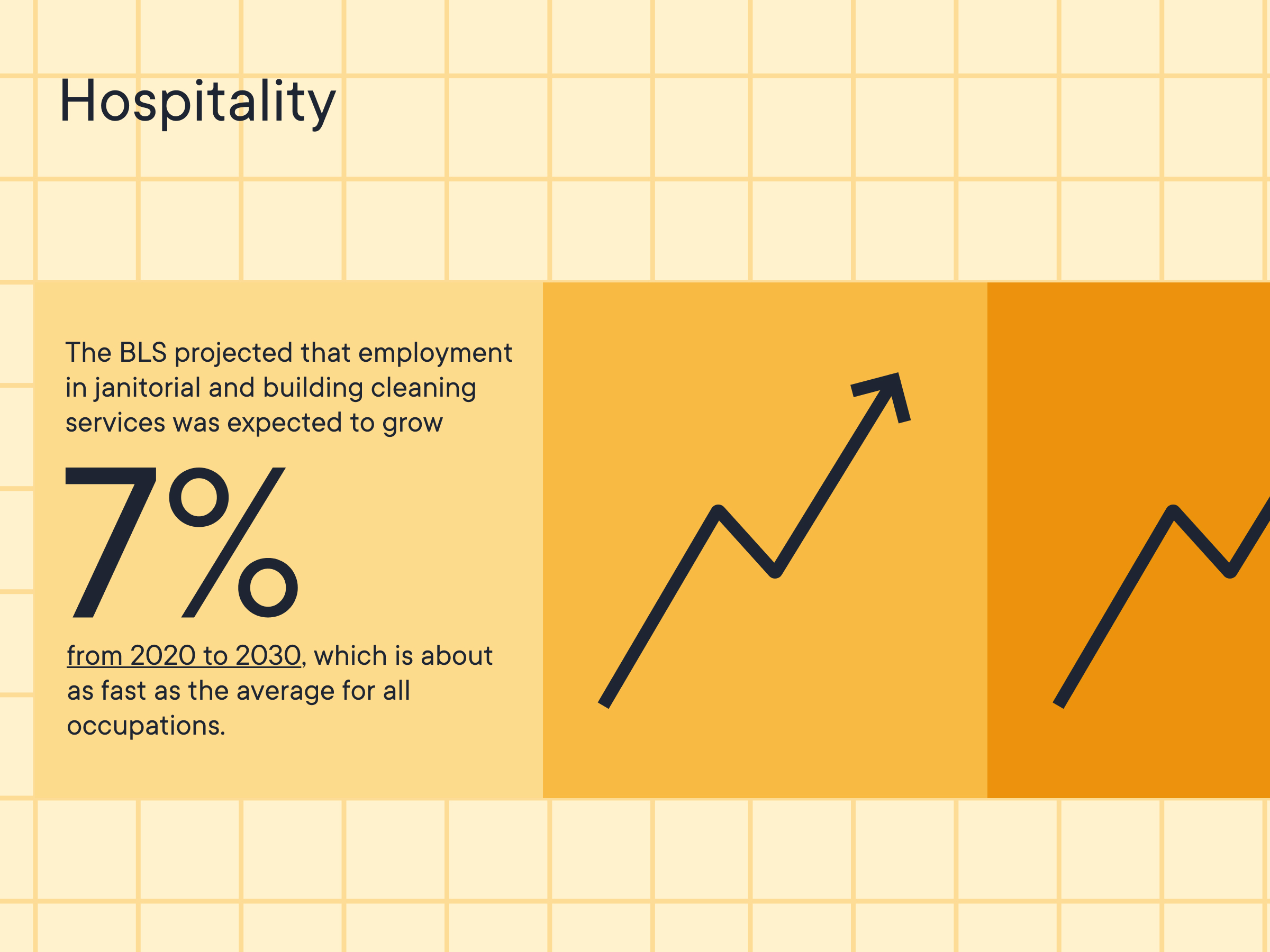
Cover letter header
A professional-looking header might seem like an add-on to your hospitality cover letter but this section serves two very important roles.
First, the header helps identify your cover letter and keeps your name, phone number and other personal data at the hiring manager’s fingertips. In large companies (like hotel chains) or hectic businesses (like restaurants), applications can go on quite a journey while being reviewed by hiring managers. Your header ensures that no matter who comes across your application, they know who you are and how to contact you.
The second purpose is to create visually appealing and eye-catching formatting. Hiring managers are often bombarded with dozens of boring, generic cover letters. By using a pop of color or an interesting design element that’s appropriate for the company and position, you can easily make an otherwise plain sheet of paper stand out as polished and professional.
You do not need to include your full address in the cover letter header. There are potential data protection issues - you can share it at the offer stage. Also, the inside address of the employer is a convention that is no longer applicable (save for the most formal applications). Use the space to tell your story, not tick archaic boxes.
Align document styles!
One way to ensure your application leaves an impact is by aligning the document styles of your cover letter and resume. This can be done using graphic design software, or more simply, with online resume and cover letter templates from Resume.io.
By aligning your headers, you can create a “personal brand” – a look and feel that identifies the documents as uniquely yours and helps a hiring manager remember your application.
The goal of the cover letter header: Display the necessary identifying information to label your document, using interesting and attractive formatting.
Cover letter greeting and introduction
Your cover letter greeting doesn’t need to be long, but it should convey the right tone and help you establish a personal connection with the reader. “Dear” followed by the correct salutation and name of the hiring manager works well for most situations. If you already have a relationship with the employer, you may opt for “Hi,” “Hello” or even a first name instead. This works especially well when submitting your cover letter by email.
The importance of names and addressed greetings.
Addressing the hiring manager or cover letter recipient by name is one of the most important things you can do to show a hiring manager you are invested in the position and have put effort into your application. This small gesture can go a long way in helping to establish that human connection that shows you appreciate the time they’re taking to review your application.
In fact, there’s even the science to back up this idea. Research has shown that we have a positive neurological response when someone uses our name.
With some employers, however, it may be nearly impossible to determine who exactly will be reading your letter. In medium to large companies, hiring is often done by an entire human resources team. In that case, you have a few options. You may choose to address the most likely reader plus the company hiring team or you might address a few names. If all else fails, “Dear (Company Name) Hiring Team” covers most situations.
The goal of the cover letter greeting: Address the letter recipient by name to establish a personal connection, use the most appropriate greeting based on your level of familiarity with the employer.
The realities of today’s competitive job market often find hiring managers receiving dozens of applicants for any single position, and lacking enough time to read each cover letter from start to finish. That means a strong first paragraph is vital for hooking an employer’s attention and making sure the effort you put into your application doesn’t go to waste.
Luckily an outstanding introduction can come in the form of an exciting anecdote, interesting fact or relevant statistic. There’s more than one way to start a great cover letter, just make sure to keep the energy high without sacrificing your professionalism.
The goal of the cover letter introduction: Catch the reader’s attention with an interesting and relevant story, statistic or fact that leads into the body section.
Dear Mrs. Buchanan,
Having managed the customer service team of a conference centre which accommodated up to 7,000 delegates, I am well placed to head up your customer care team
Cover letter middle part (body)
Now you’re ready to dive into the biggest section of your hospitality cover letter, which allows you to expand on your most impressive achievements and milestones. In order to simplify the writing process while still keeping your letter organized, you may choose to divide this section into two subsections.
In the first, you can use the STAR method to highlight relevant contributions in previous positions. Simply describe a Situation, the Task, your Action and the positive Result it created. Make sure to choose only the most relevant examples based on the tasks of your new position.
In the second paragraph, you can discuss the skills you bring and your potential contributions to this position. The advertised job description is a great place to look for insight into which tasks and skills are most important to mention in your cover letter.
No matter where you work in hospitality, there are a few key qualities you’ll want to convey in the middle of your cover letter.
- Communication: It comes as no surprise that good communication skills are the backbone of any job in hospitality. Every position in this service industry requires you to interact with customers and other staff.
- Teamwork: In restaurants, hotels and tourist attractions, no one works alone. Being able to work efficiently and positively on a team is extremely important. Examples of leadership or good collaborative experiences can make for persuasive anecdotes in your cover letter.
- Customer service: How you resolve problems, fix mistakes and treat the clients that make the business run will ultimately determine your success in the hospitality industry. Make sure to highlight examples where you went above and beyond to offer excellent guest service and customer satisfaction.
- Flexibility: Hotels, restaurants and all leisure businesses need staff who can reliably work weekends, nights and even early mornings. While this might not seem like an essential skill, when two candidates have the same resume, scheduling ease might just make the difference.
The goal of the cover letter body: Use the STAR method to highlight previous successes, and suggest potential contributions to your new workplace.
Running a successful conference requires meeting the needs of countless suppliers, partners, and attendees. The experience should be seamless. Your conferences are famous for their operational brilliance - I am experienced in using the latest technology. Attention to detail is only possible if you understand the limitations of the technology.
Six years after my degree in Hotel and Restaurant Management at Howto University, I am still finding new ways to solve customer problems. Practice takes over from theory after a while. From my perspective, guidelines should mostly be followed, but sometimes you need to take action that goes beyond what is expected. You never know who might be signing on the dotted line for your next conference – every visitor is special.
I pride myself on having the judgement to make the right decisions. Our customer satisfaction rating of 97.9 was the third highest out of our 38 conference centres. While I was the head of customer service, we doubled repeat business from 31% to 63%. Attendee numbers went up by an average of 48% over the same period. When companies trust you to organize their events, their competition will start to trust you as well.
I pride myself in my ability to influence issues before they get out of control. My life is so much easier when I can anticipate problems and smooth relationships ahead of time. The key to this is listening – my interest in meditation helps here.
How to end a hospitality cover letter (conclusion and sign-off)
Now that you’ve made the best case for your employment, it’s time to conclude your hospitality cover letter professionally and respectfully. The best way to do this is with a call to action. This sentence expresses your enthusiasm for the position and invites the hiring manager to contact you. Don't hesitate to be hopeful with your concluding thoughts - you want the position, after all.
Then, end your letter with the appropriate signature. “Sincerely,” “Best regards” and “Thank you for your consideration” can all work well.
The goal of the cover letter conclusion: Create an effective call to action that encourages a hiring manager to get in touch, and use the appropriate signature to end your letter.
I am coming to your conference next week and was wondering whether it might be an opportunity to meet for a discussion? Otherwise, I look forward to a potential interview to understand more about how I might assist you in delighting your customers.
Sincerely,
Matthew Jones
How to land a hospitality job with little or no experience
Jobs in hotels, restaurants and amusement parks make great part time summer gigs and first work experiences because they rely heavily on the soft skills you probably already possess. Employers in these industries know that motivated candidates can quickly learn how to perform the daily tasks – but there are some skills that are harder to teach.
Your cover letter is a great place to convince an employer that you’re the right choice, even if you don’t have much customer service or hospitality experience. Instead, try focusing on the qualities that will make you a great employee and team player. Show an employer that you’re motivated to stick around, pay attention and learn the ropes.
You can also benefit from highlighting transferable skills. These can come from after-school activities, leadership roles and even volunteer positions. A positive attitude, teachable spirit and commitment to a job well done are often all you need to get started in entry-level hospitality jobs.
Avoiding basic mistakes in a hospitality cover letter
Let’s take a look at some of the pitfalls candidates in the hospitality industry often run into.
- Generic cover letters: Submitting the same general cover letter to each hospitality position may seem like the easiest option, but it likely won’t land you a job. You need to show a recruiter why you’re invested in their company and why you have the right skills for their position.
- Poor formatting: Don’t let sloppy formatting take away from your professional writing. Use templates or online tools to make sure you have the right balance of white space to text, with font and color choices that are appropriate for the company’s tone.
- Spelling and grammar mistakes: Too many typos and grammatical errors can make your entire letter unreadable. Make sure to use a spell checker and have a friend proofread your cover letter before you submit it.
- Failure to highlight customer service skills: At the end of the day, managers are looking for candidates who understand their business and have the skills to succeed. Make sure to highlight the most relevant experiences that show how you can use your hospitality skill set to make a difference.
Key takeaways
- A cover letter is an essential part of a great application. Don’t skip this step unless a job posting specifically asks you NOT to submit one.
- Tailoring your cover letter with the skills and experiences most relevant to each individual hospitality position is one of the most important things you can do to increase your chances of landing a job.
- Follow the tried-and-true cover letter structure we recommend to keep your document organized and professional.
- If you don’t have much hospitality experience, use your cover letter to highlight important soft skills like teachability, reliability and a positive attitude.
- Formatting is an essential part of a professional cover letter. Choose your "look" with care.
With resume.io, you can create a perfect cover letter in no time at all. Turn your cover letter into a powerful tool that increases your chances of getting hired!


